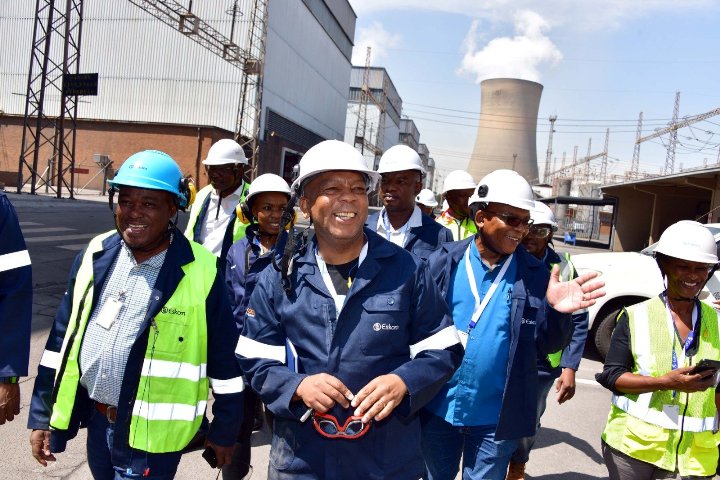Minister Ramokgopa Urges Financial Sector to Reduce Borrowing Costs for Africa’s Development and Clean Energy Transition
“The biggest challenge confronting Africa is securing the necessary financing to unlock its full potential. The issue of the financing gap must be central to discussions on development,” Ramokgopa stated.

- Country:
- South Africa
Minister of Electricity and Energy, Dr. Kgosientsho Ramokgopa, has urged global financial institutions to take active measures in lowering borrowing costs to drive Africa’s development, enhance climate resilience, and support the continent’s transition to clean energy.
Speaking at the Africa Energy Indaba in Cape Town on Tuesday, Ramokgopa highlighted Africa’s paradox—being the most mineral-rich continent yet suffering from severe energy deprivation, underdevelopment, and widespread poverty.
Financing Gap Hindering Africa’s Growth
“The biggest challenge confronting Africa is securing the necessary financing to unlock its full potential. The issue of the financing gap must be central to discussions on development,” Ramokgopa stated.
He pointed out that developing nations often face exorbitant borrowing costs due to perceived risks that are based on outdated assessments rather than actual economic fundamentals.
“Our view is that the cost of capital must be restructured. Developing countries are burdened by high interest rates due to a skewed risk perception, which does not accurately reflect economic realities but is instead based on obsolete credit rating models,” he explained.
Debt Burdens and Investment Challenges
Ramokgopa acknowledged the severe debt burdens that many African nations face, which limit their ability to invest in crucial areas such as development, climate resilience, and clean energy transitions.
“These financial burdens stifle investment potential. Sovereign nations must take strategic steps to leverage their balance sheets effectively to enable the necessary investments in energy and infrastructure,” he said.
Call for Better Coordination Among Financial Institutions
The Minister also emphasized the need for greater coordination among financial stakeholders, citing fragmentation among multilateral development banks, development finance institutions, and climate funds as a major barrier.
“Currently, these institutions operate in silos, creating inefficiencies that undermine our ability to achieve maximum impact. Without proper alignment, the funds available for investment will not yield the desired outcomes,” he warned.
Strengthening National Development Banks
Ramokgopa also called for the recapitalization of national development banks, particularly in South Africa, where the Development Bank of Southern Africa (DBSA) could play a larger role in financing key industries.
“If adequately funded, DBSA can offer more favorable financing conditions. However, it currently competes with commercial banks, which limits its ability to provide the necessary concessional funding needed for large-scale development,” he explained.
Attracting Private Sector Investment
Highlighting the crucial role of private sector involvement, Ramokgopa urged African political leaders to create stable economic and political environments that encourage investment.
“Political stability and necessary economic reforms are essential for attracting private sector participation. Governments across the continent must take decisive steps to improve investment conditions,” he emphasized.
A Call to Action
Ramokgopa’s remarks at the Africa Energy Indaba underscore the urgent need for financial reform to enable Africa to fully leverage its natural resources, drive industrialization, and transition towards a sustainable energy future. With better coordination, reduced borrowing costs, and a stronger role for national development banks, Africa’s potential for growth and resilience can be fully realized.










